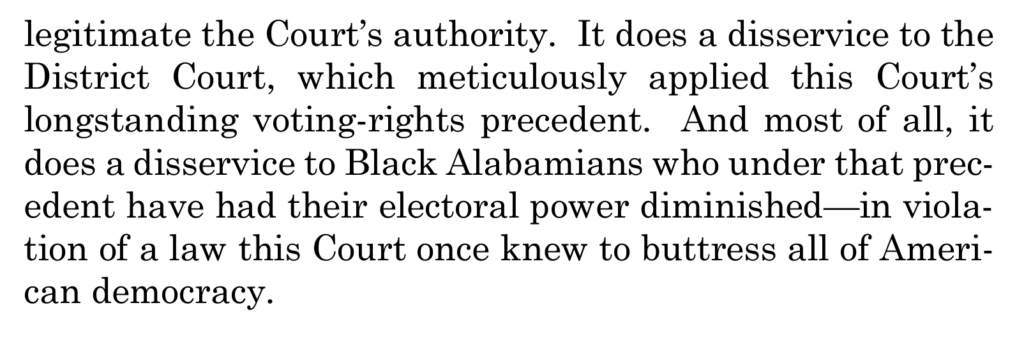Roberts Court uses shadow docket to do more neoconfederacies

In a 5-4 decision — with Roberts dissenting, effectively arguing that the Court should wait until after the 2022 midterms to do its dirty work — the Court has stayed a District Court opinion, ensuring that the coming elections will take place with a map that is, as Roberts concedes, unquestionably illegal under controlling precedent:

Roberts goes on to strongly imply that the Court should overrule Gingles — and it’s dead however he votes anyway — but it’s outrageous to grant a stay under these circumstances. The excuse offered by a concurrence that is feeble even by Kavanaugh standards is the ever-expanding Purcell principle, which holds that courts should be wary about intervening in elections close to Election Day. But as Kagan observes in her dissent, applying the rule in this timeline is absolutely ridiculous:


To apply Purcell in these circumstances is essentially a rule the lower courts can never provided remedies to discriminatory election laws — which is of course the point. As Kagan concludes, the decision is both procedurally and substantively outrageous:


I also recommend checking out footnote one of Kagan’s dissent, which brutally eviscerates Kavanaugh’s protesting-too-much claim that the Court is not expressing any view on the merits. Given the burden of proof that is supposed to fall on the party requesting relief, the decision whether or not to grant a stay obviously “has both a merits component and an equitable component,” and granting the stay would be nonsensical unless Gingles has been de facto overruled. But with one exception the Republicans on the Supreme Court is unwilling to have even one more election take place with any part of the Voting Rights Act still in force, so they once again abused the shadow docket to allow Alabama to dilute minority representation. It’s appalling on every level.


